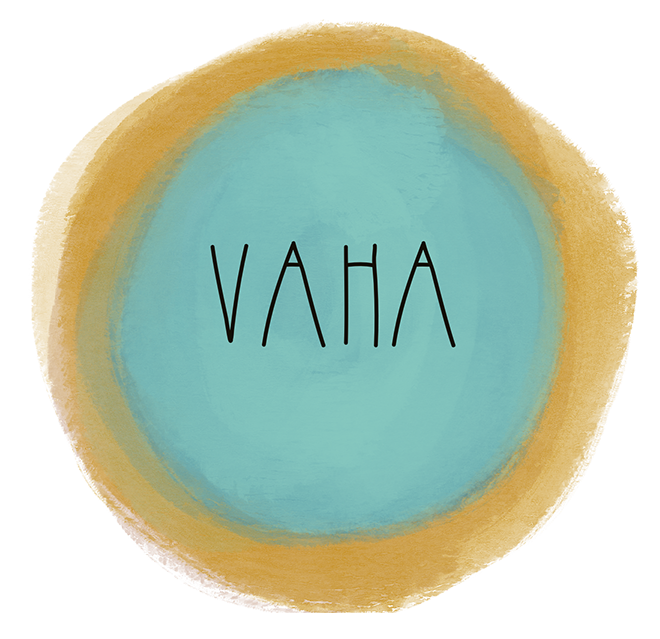Community
Workshop
The online meeting lasted for two days and brought together up to 25 people from Bosch Alumni Network (BAN) and VAHA circles. The agenda included a conversational speech by the community artist and writer François Matarasso (France/UK), two interactive workshops by BAN members Edna Martinez (Mexico) and Cemre Ceren Asarlı (Turkey) as well as a World Café session with Vincent Meyrignac (Greece - Athens), Gül Yavuz (Turkey - Antalya) and Valentin Schmehl (Germany - Weimar) from VAHA hubs.
François started by asking the fundamental question, “Who feels at home in your institution and who does not?”. The mission and integrity of an organisation is interdependent on communities, and we need to follow the interests of the community, not just our own interests, for our work to be relevant. The relationship between the organisation and the community has a dynamic rhythm so it will always go through changes. How we build trust is critical whether it be online or offline interactions. In fact, “there are no hard to reach groups; we just don’t know how to connect with them. Similarly, there are no unheard stories; all stories are told somewhere by someone but we don’t hear them.” The cultural sector was falling behind the digital revolution, mainly making use of it for marketing purposes. However, the pandemic has changed this relation, and cultural organisations began to show more presence in digital technology. Digital can increase accessibility for certain groups, saves time and money so it inevitably makes us rethink how we imagine the way we work. On the other hand, building trust becomes more tricky and as a challenge lies at the heart of building a community online.
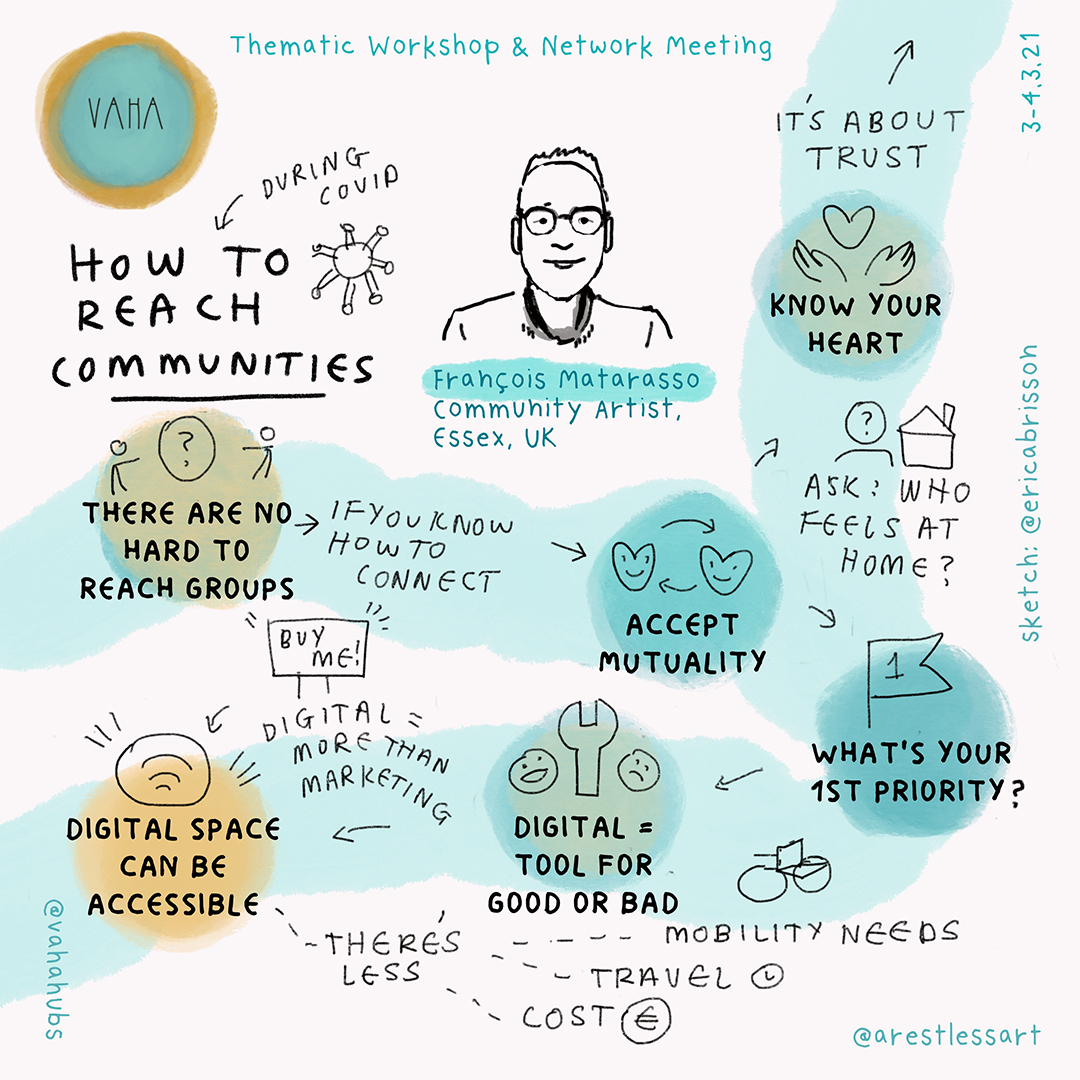
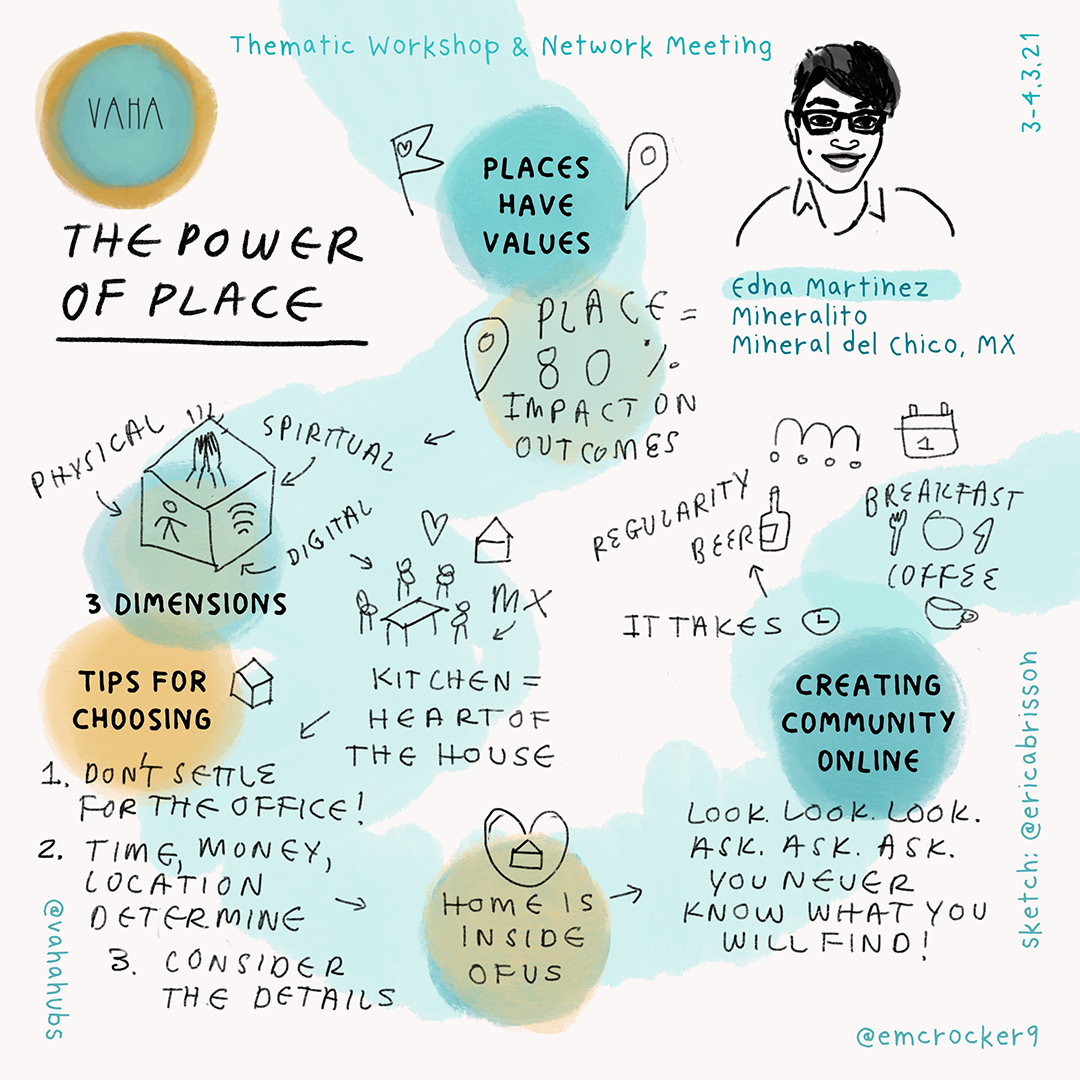
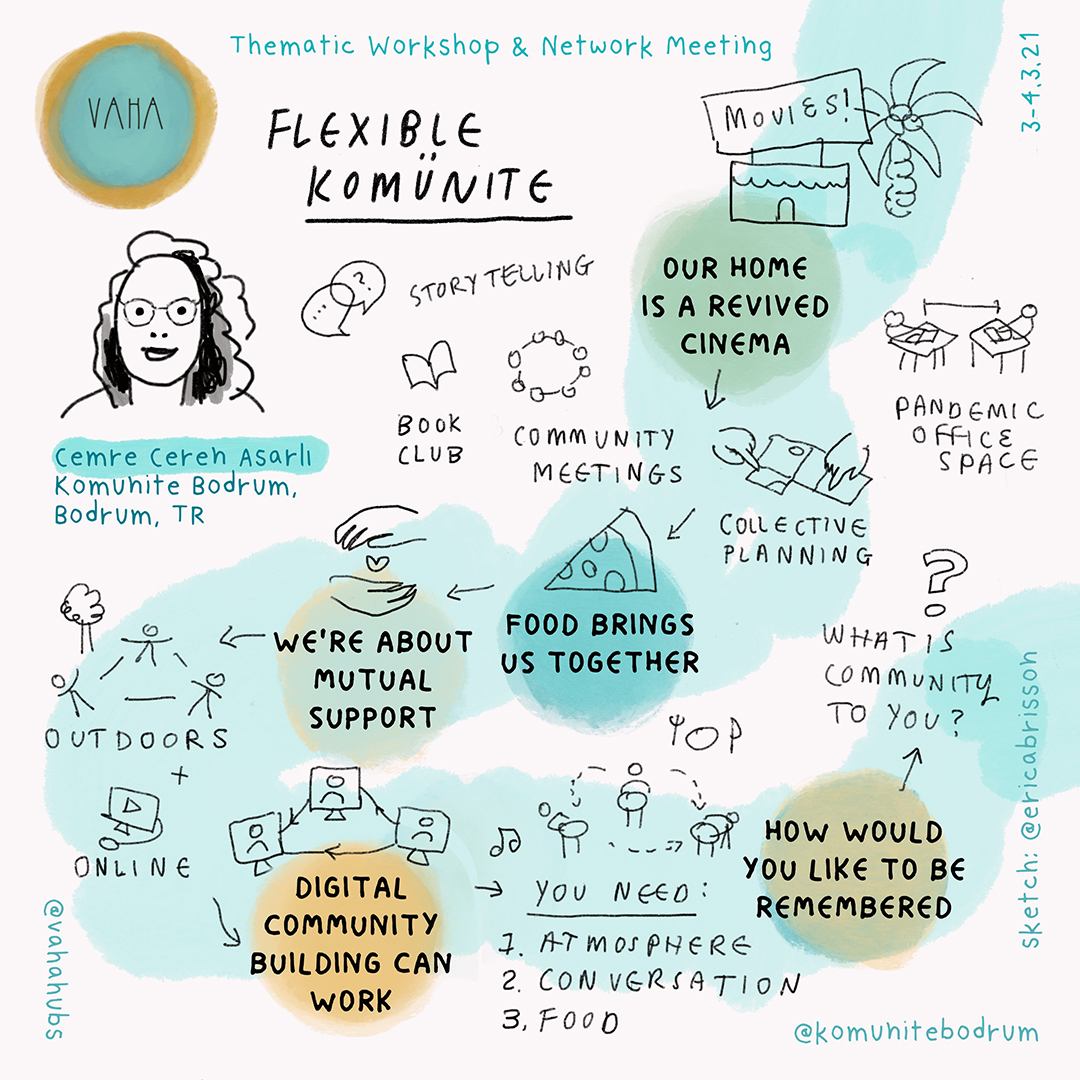
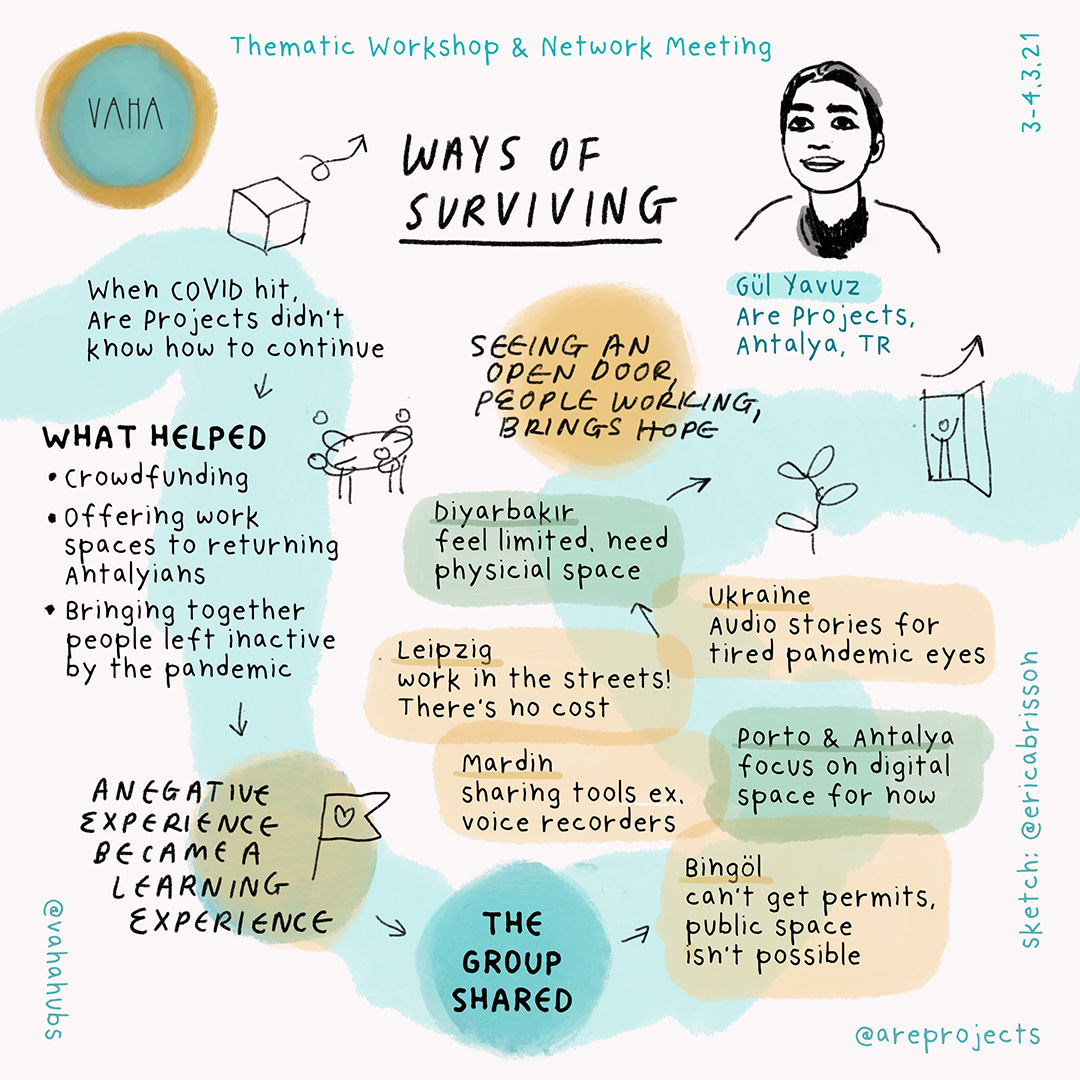
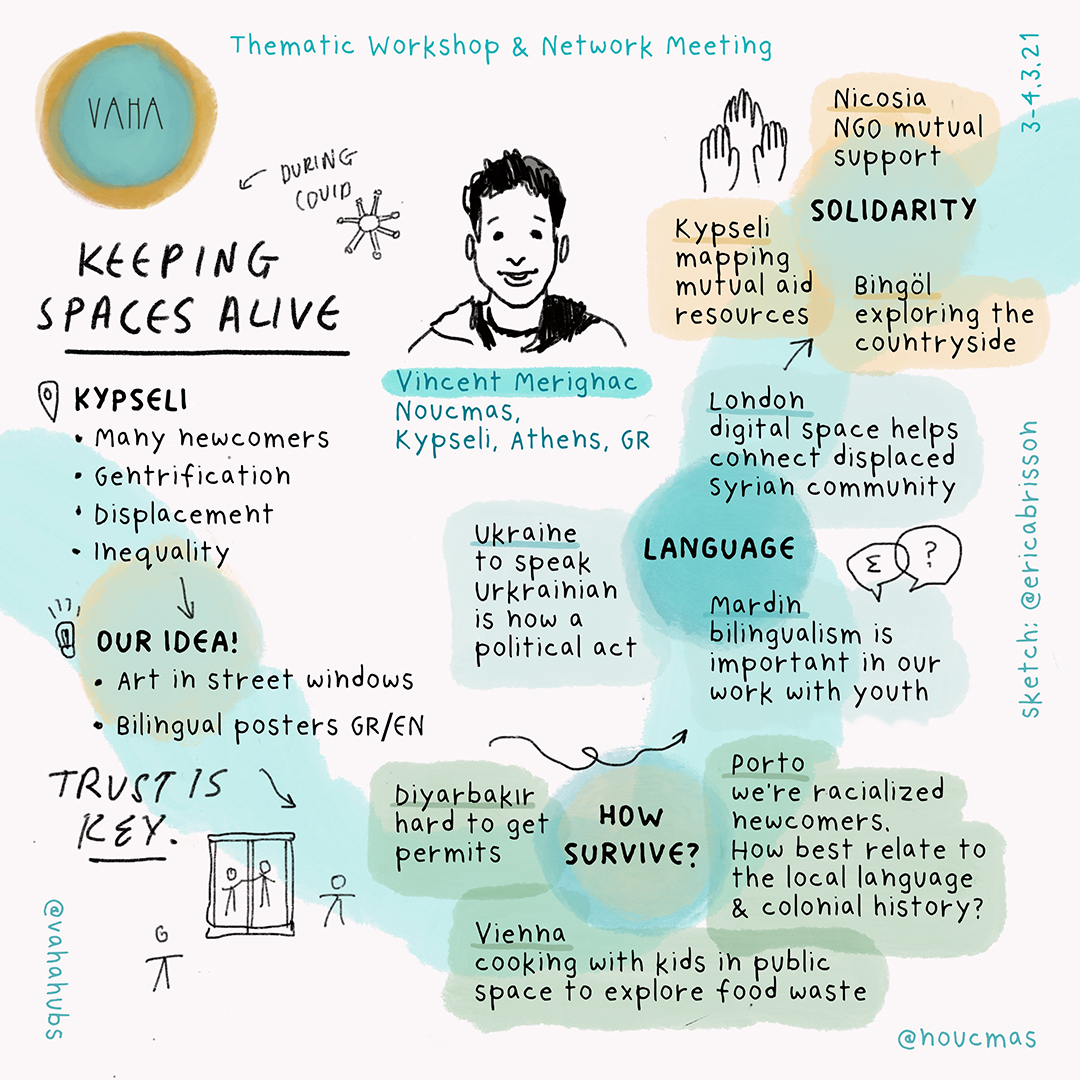
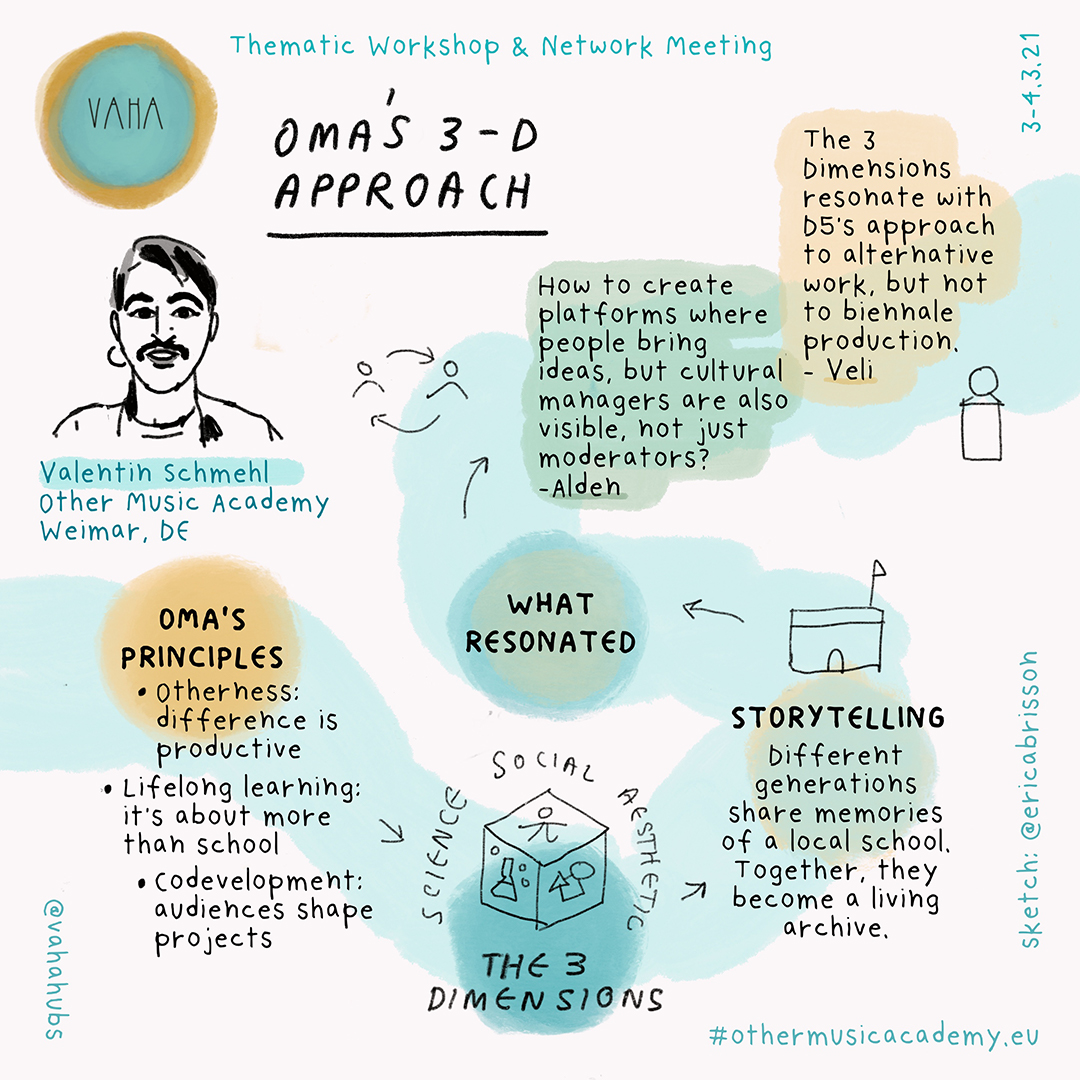
VAHA towards community development
VAHA Thematic Workshop and Networking Meeting #1
03.03.2021
The very first “VAHA Thematic Workshop and Networking Meeting” organised in collaboration with iac Berlin took place on 3 - 4 March 2021 on the theme of “Community & Audience Development”.
The selected theme is a common interest by VAHA hubs as most of them have physical spaces and aim to connect to their local community through events and activities. They organize public cultural activities and they are interested in community development, especially reaching out to people from different social backgrounds to extend their audience profile and become more inclusive. This mission has its own challenges but the pandemic has added a new layer calling for a reconsideration of our methods and approach. As spaces are temporarily shut down and all activities have become online, how can we sustain our community and/or reach out to disadvantaged groups? A lot of groups and organizations inevitably rely on offline community interactions in order to have social impact, and some others are interested in developing strategies for dealing with digitalization during the lockdown period. All in all, community is an integral part of our works, whereas digitalization and the maintenance of community is a shared concern during a time when there is limited physical interaction and access to public spaces. The online meeting lasted for two days and brought together up to 25 people from Bosch Alumni Network (BAN) and VAHA circles. The agenda included a conversational speech by the community artist and writer François Matarasso (France/UK), two interactive workshops by BAN members Edna Martinez (Mexico) and Cemre Ceren Asarlı (Turkey) as well as a World Café session with Vincent Meyrignac (Greece - Athens), Gül Yavuz (Turkey - Antalya) and Valentin Schmehl (Germany - Weimar) from VAHA hubs.
François started by asking the fundamental question, “Who feels at home in your institution and who does not?”. The mission and integrity of an organisation is interdependent on communities, and we need to follow the interests of the community, not just our own interests, for our work to be relevant. The relationship between the organisation and the community has a dynamic rhythm so it will always go through changes. How we build trust is critical whether it be online or offline interactions. In fact, “there are no hard to reach groups; we just don’t know how to connect with them. Similarly, there are no unheard stories; all stories are told somewhere by someone but we don’t hear them.” The cultural sector was falling behind the digital revolution, mainly making use of it for marketing purposes. However, the pandemic has changed this relation, and cultural organisations began to show more presence in digital technology. Digital can increase accessibility for certain groups, saves time and money so it inevitably makes us rethink how we imagine the way we work. On the other hand, building trust becomes more tricky and as a challenge lies at the heart of building a community online.

Edna began her session by opening a world map and pinning all participants on the map, showing how distance between us is relative in physical and digital. Then she talked about the impact of the space/place that we meet or work on our outcomes. Therefore, we need to carefully consider and identify the spaces that will boost community creativity rather than settling down for the closest or cheapest options. The purpose of a meeting should guide the place we choose to bring people together. This is also valid for digital meetings, and we need to specifically define our purpose to be in the digital space. However, the digital space can be disorienting due to the deprivation of senses. Edna again emphasized the hardships of building trust and connection online. We need even more time and consistency to create a community, and more efforts to keep the level of interest, engagement and motivation of the people.

Cemre introduced us with their experiences as Komünite Bodrum for creating both an offline and online community. We raised the initial question of what community means for each of us, discussed the differences of network and community, and talked about how to find a common ground in creating a community. In terms of online vs. offline dilemma, Cemre pointed out that sometimes we need to be flexible to be more inclusive and offer both options as the community members might have diverse preferences and conditions. They have adopted this flexible approach and it works well for different purposes. Whereas it is possible to create a bigger and borderless community online, some people avoid online encounters as much as possible. In this case, it is inclusive in another sense to keep the local community meetings offline (in outdoor settings even during the pandemic). If the foundations are built strong, the community can survive in different forms against all the odds.

Last but not least, the World Café session to discuss some case examples on the theme from VAHA cosmos was hosted by three VAHA participants. Gül, representing are projects from Antalya hub, shared the survival strategies they developed as an independent art space to overcome the obstacles brought about by the pandemic. They figured out how to mobilize their local community and limited resources even better than before so the crisis turned into a learning experience. Vincent, representing Noucmas from Athens hub, gave examples on how they ‘hacked’ digitalization and imagined new ways of sharing within the community, how to approach the critical issue of language for some local communities, and how to create a local solidarity network and share resources. Valentin, representing Other Music Academy (OMA) from Altenburg hub, explained the principles of OMA in building a community based on empowerment, and invited participants to consider the three dimensions of human action (namely, social, aesthetic and scientific) in their own local contexts and works.



Text by Aysu Arıcan - from VAHA Coordination Team
Visual harvesting by Erica Brisson
Visual harvesting by Erica Brisson


